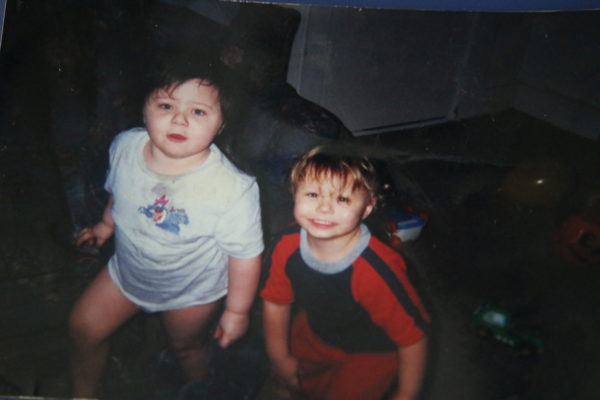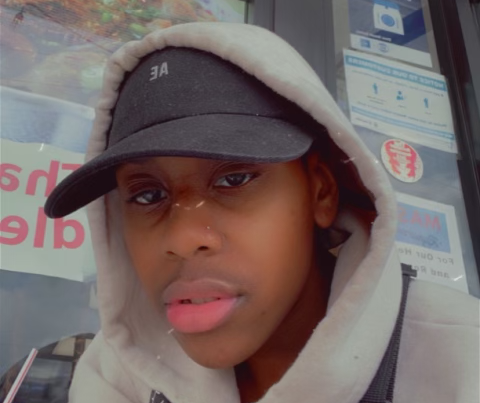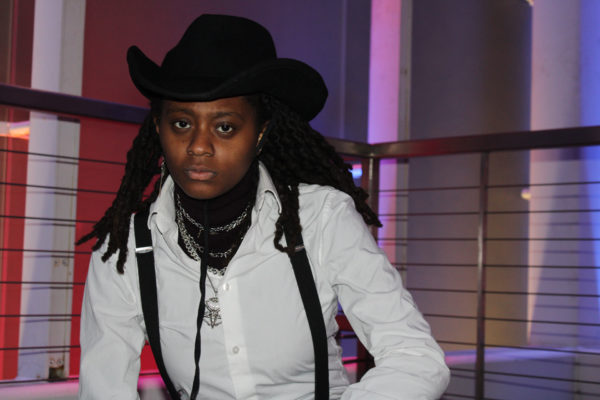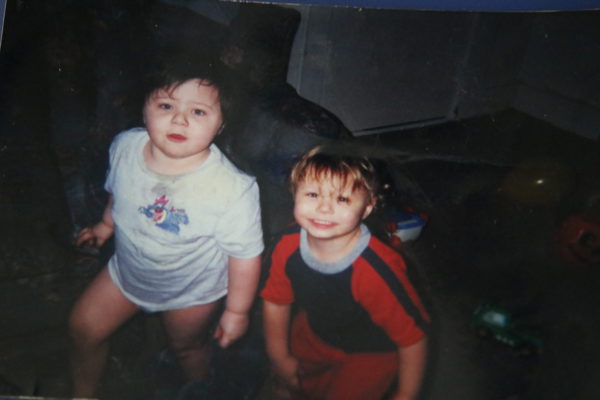WASHINGTON, D.C. – People around the world have struggled for more than a year while stuck at home for school and work. But this physical and social isolation has taken a particularly tough toll on LGBTQ+ youth, data and interviews show.
That’s because the pandemic cut many gay and transgender youth off from the places and spaces where they feel free to be themselves and forced them to spend a lot more time with family members who may not accept them.
“A lot of my friends are in the closet…and being stuck at home, they can’t really get out into the world,” said K.C. Elowitch, a 14-year-old transgender student in Rockville, Md. “At school, they were able to do whatever they wanted and be whoever they wanted. Now being stuck at home with [their families] is a lot more stressful.”
Elowitch was one of 11 young people, ages 14 to 22, who participated in a recent LGBTQ+ youth mental health focus group hosted by the Urban Health Media Project, a Washington-area nonprofit that trains diverse high school students from under-resourced communities to do multimedia health and social issue journalism.
Elowitch’s experience was echoed by others in the focus group.
“I was in a bad place when I was closeted,” said Wendy Nichols, a 22-year-old trans woman who began transitioning last summer. “Not just mentally, but literally and physically.”
Living with transphobic parents made it “hard to be comfortable with myself,” said Nichols.

Wendy (left) is shown with her twin brother (right)
Focus group members honed in on topics that make it hard to be LGBTQ+, including:
- A lack of positive and realistic representation of LGBTQ+ youth in media;
- Being misdiagnosed in doctor’s offices and being treated unfairly due to sexuality, along with other health inequities; and
- The impact of strict religious beliefs about sexual orientation and gender identity.
Participants were encouraged to share openly, and were led through the 90-minute discussion by professionals, and fellow members of the LGBTQ+ community. The focus group was co-moderated by Heidi Ellis and Josh Rivera. Ellis, who identifies as lesbian, was a senior adviser at the U.S. Environmental Protection Agency in the Obama administration and now runs her own advocacy and consulting company. Rivera, Money & Consumer Editor at USA TODAY, is gay and chairs the newspaper’s diversity committee.
The focus group participants talked about what they would like addressed by the media and what they would like to see change. They emphasized topics such as safety, gender identity, and safely coming out to others.
Roman Sardo-Longo, a 16-year-old trans male who joined the virtual focus group from Cleveland, said having more LGBTQ+ representation in the media could help other young people more easily accept peers like him.
“It took me a while to come out [as trans] because I was terrified that my friends would not understand, that they weren’t gonna get it, that they would think it was a weird thing they would have to accommodate for,” he said.
Others shared their experiences with religious beliefs that oppose LGBTQ+ identity and sexuality.

Tris Buchanan, a DC high school senior, is shown in a recent selfie.
Tris Buchanan, 17, lives in Washington, D.C., and identifies as gender-fluid. Buchanan’s parents’ Christian religion played a big role in their struggle to come out.
“Some die-hard Christians…say God does not like gays, God doesn’t like anyone who’s part of the LGBTQ community,” said Buchanan. “Homophobes use the Bible and use God as excuses.”
Nichols, who also grew up in a conservative Christian household in Texas, said the concept of “toxic masculinity” also greatly affected her as she was growing up.
“I was told, ‘Men don’t cry,’ ” said Nichols. “I grew up with that and it skewed my views.”
When Nichols was 16, she finally decided to tell her family she identified as a woman. Her late mother, who had struggled with mental illness since a serious brain injury in a car crash, took Nichols for a drive and threatened to drive them both into the river if her daughter didn’t retract the statement. So Nichols did.
But last June at 21, Nichols began transitioning to a female by taking hormones she got off the Internet. She didn’t have health insurance and lived nearly five hours from the nearest health care provider who would treat her. After her father died of cancer last August, she moved to the Washington, D.C., area to live with a friend she met online.
When that didn’t work out, Nichols became homeless and called the LGBTQ+ youth shelter Casa Ruby. There, she found comfort with others like her and within two months, was connected to the transitional housing where she can now live for the next 18 months, if needed. She begins a new job as a receptionist in early May.
Nichols, who struggles with substance use and what she believes is depression, said she’s feeling more hopeful than ever that “one day I can overcome it all.”
“The future seems so bright now,” she said. “I’m not stuck in a place where I couldn’t be myself or dreading the next bad thing as I did for most of 2020 when I was preparing for my father to pass away.”
UHMP also just completed a workshop on the relationship between housing and health, including LGBTQ+ youth homelessness in D.C. and Baltimore. That story will run soon in the Blade. Another reporting workshop this summer will explore youth mental health, with a special focus on the LGBTQ+ and Black, Indigenous and People of Color (BIPOC) communities. UHMP is seeking applications for 20 high school students to attend.
UHMP is also pursuing reporting on topics proposed by the young people who attended the focus group. Two participants are working on a story about the additional challenges faced by LGBTQ+ youth with learning disabilities.

Jojo Brew, 18, is a DC high school senior and photographer.
Jojo Brew, an 18-year-old trans male in Washington, D.C., who participated in the focus group, believes the LGBTQ+ community should produce positive content on social media sites such as Instagram in order to raise awareness and promote understanding of gender and sexuality issues.
To that end, he’s begun interviewing and photographing other LGBTQ+ teens in the D.C. area for visual articles and social media posts and told a little of his own story for Instagram. Brew is also helping plan a June 18 LGBTQ+ event co-hosted by UHMP in Washington, where he hopes young people who may not be out can be “one with the community” even if they don’t speak publicly.
“Having that exposure to other LGBTQ+ people, they’d realize they aren’t the only ones going through a tough time,” said Brew. “They want to be heard and feel some type of love.”
Brew was recently awarded a Children’s Defense Fund fellowship grant to chronicle the sense of community in Southeast Washington and is working with UHMP to capture and share the stories of LGBTQ+ youth in the D.C. area.
UHMP is looking for LGBTQ+ people of all ages who are willing to be interviewed about youth mental health. We’d like to hear from youth and adults on all topics, including the impact of the reactions of community, government, parents, religious organizations and peers to youth gender and identity. What helped you weather challenges that could help the next generation? Let us know at [email protected]
Vanessa Falcon is a UHMP intern and senior at Miami Lakes Educational Center in Florida. Jayne O’Donnell, former health policy reporter at USA TODAY, is UHMP’s founder.

